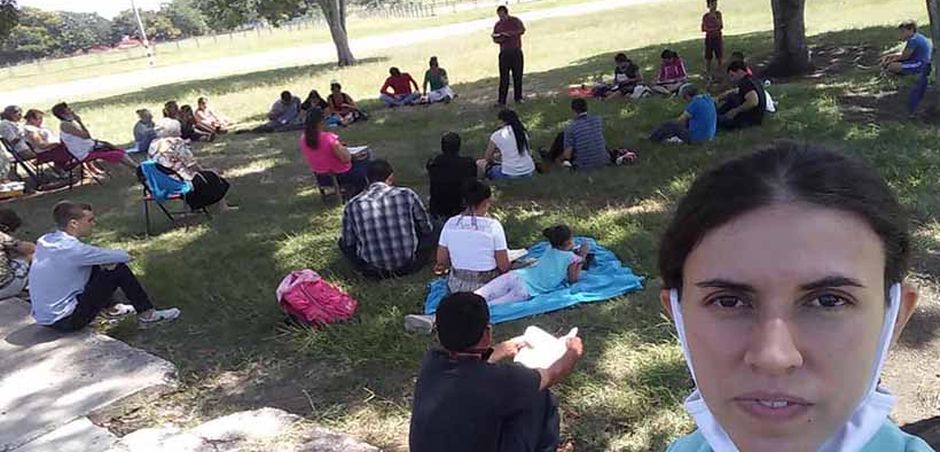Cuban officials force the closure of an evangelical church
“They did not give us any option or alternative to negotiate. Rather, it was a resounding, arbitrary closure, and without any solution”, the pastors point out.
Evangélico Digital · HOLGUÍN · 21 SEPTEMBER 2020 · 11:00 CET

Officials from the Ministry of Justice, Physical Planning, the provincial Communist Party and agents of the State Security in Cuba have been harassing an evangelical church in Holguín for three months, according to the journalist of the newspaper Diario de Cuba, Yaiset Rodríguez .
Between June and July 2020, pastors Uberney Aguilar and Yalina Proenza received visits and official summons on at least six occasions, with the aim of threatening them and forcing them to permanently suspend their religious services.
About 60 people have gathered since February 15, 2017 in the Jehovah Shalom church, which "is duly recognised by our denomination and has all the books in order do its work correctly”, the pastors, accredited by the Assemblies of God in Cuba, say.
Its members claim to have excellent relations with the community, but suspect that the authorities want to close the church and prevent its growth because "Ernesto Santiesteban Velázquez, who was appointed two years ago as the first Secretary of the Cuban Communist Party in the province, lives nearby”.
Harassment since 2019
The Physical Planning inspectors, provincial party officials and authorities from the Ministry of Justice have harassed this congregation to prevent it from meeting since 2019.
“They did not give us any option or alternative to negotiate. Rather, it was a resounding, arbitrary closure, and without any solution”, the pastors point out.
The property where they meet is in the name of a church member. In 2019 they asked the Ministry of Justice for permission to hold worship services. They did not receive a response in due time.
On July 9, 2020, the provincial director of Justice of Holguín, Nelson Flavio Plutín Santos, and the head of the Department of Associations, Ormani Rodríguez Tamayo, finally denied this congregation the right to meet on their property, another violation of the religious freedom that the Cuban Constitution claims to respect.
One of the ways the government represses religious groups is by not recognising new associations, denominations or places of worship as “legal”. The Cuban Law of Associations excludes new religious groups and/or church associations that want to operate within the legal framework.
Legal loophole allows arbitrariness
The legal loophole is used in Cuba to limit the growth and organisation of Cuban religious groups as part of civil society. Hundreds of churches and dozens of religious groups remain unrecognised.
Thanks to this legal limbo, the government has demolished temples throughout the country, destroyed and/or confiscated property, fined and imprisoned pastors for “illicit association”, and other alleged crimes.
Such was the case of pastor Ramón Rigal, who is on probation until February 2021. Rigal was convicted of home schooling and “illicit association”. His church in Guantánamo was not registered in the Registry of Associations of the Ministry of Justice.
That ministry also determined on January 14, under resolution No. 2/2020, to “deny the request for the constitution of the fraternal association, Alliance of Cuban Evangelical Churches”.
The authorities, through the Office of Religious Affairs and agents of State Security, have mistreated the leaders of this group, which represents an evangelical majority on the island.
There is a campaign to discourage the formation of the Alliance from the state and the blogs at the service of the regime. They do not recognise the purposes set out in their founding act and defame it arguing that they receive CIA funding. They have also regulated the trips of their representatives abroad.
The attack on the Jehovah Shalom Church, which now holds its services outdoors, shows the mechanisms and intentions of the authorities in Cuba: to freeze the legal status of historical religious organisations in order to limit their social influence, to hinder the opening of places of worship, and to close the doors to the legalisation of new alliances, associations or groups.
Published in: Evangelical Focus - cities - Cuban officials force the closure of an evangelical church
